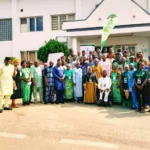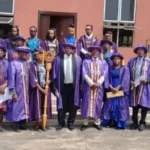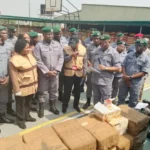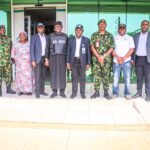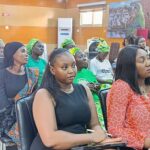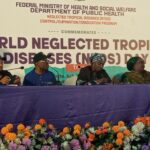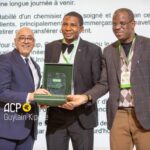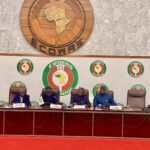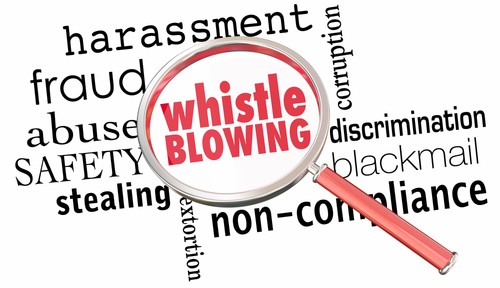By Daina Umueza/Angela Atab
Stakeholders in the anti-corruption sector have called for the adoption of a unified sub-regional whistleblowing approach to strengthen efforts in tackling corruption in West Africa.
The stakeholders at a two-day Sub-regional Conference on Whistle Blowing and Whistleblower Protection in West Africa, said the move was imperative as corruption continues to undermine governance and public trust in many countries.
The conference with the theme “Reducing Corruption in West Africa: The Importance of Whistleblowing and Whistleblower Protection Legislations”, was organised by the African Centre for Media and Information Literacy (AFRICMIL) with partners in Abuja.
The News Agency of Nigeria (NAN), reports that the experts argued that a coordinated, cross-border framework would provide stronger protections for whistleblowers, promote accountability, and create an environment where corruption is less likely to thrive.
Mr Cheikh Toure, United Nations Office on Drugs and Crime (UNODC) Representative to Nigeria, said the protection of whistle-blowers was repeatedly referred to as one of the most effective tools to prevent, detect and ultimately prosecute corruption cases.
Toure, who was represented by Ms Princess Chifiero, UNODC’s Project Coordinator for Anti-corruption, said that Article 33 of the United Nations Convention against Corruption required States parties to protect whistleblowers and urged States to implement it.
“Today’s sub regional conference is therefore very timely and is perfectly in line with the worldwide recognition of the importance of whistleblowers in the fight against corruption, and the need to protect them effectively.
“We therefore hope that this conference will be fruitful and enriching, and that it will also represent a first step for Nigeria and other West African countries, to adopt a law dedicated to the protection of the whistleblower,” the UNODC representative said.
Also, Mr Olanipekum Olukayode, Chairman of Economic and Financial Crimes Commission (EFCC), said that whistleblowing was a critical aspect of fighting corruption because 70 per cent of the anti-corruption work was based on intelligence.
Olukayode, represented by his Chief of Staff, Mr Michael Nzekwe, however said that unfortunately there was no legal framework and accurate data to strengthen the policy.
According to him, the Commission only works within its policies guiding whistleblowing.
He said that this was deterring Nigerians from blowing the whistle and encouraged them to be patriotic, shelve the selfish quest for incentives alone and embrace the policy while anticipating the law.
“If you see something, say something, and when you are saying something, say it very loud and make sure that what you are saying is very credible that we can work with.
“I hope that at the end of this particular conference, there will be a lot more changes in the lack of comprehensive legislation, the challenges faced by the whistleblower like victimaisation among others.
“One of the key takeaways from here would be to try to facilitate the legislators and do whatever it will take to see that this law comes to protect whistleblowers, tackle corruption and Nigeria and the West African region would benefit,” the commission’s chairman said.
In his remarks, Dr Kole Shettima, MacArthur Foundation’s Director in Nigeria, said that the body was supporting the anti-corruption fight to improve the accountability mechanism in Nigeria and promote behavioural change.
“Last year, the National Bureau of Statistics did a survey, a population survey about norms and values in Nigeria.
“Behavioural change is critically important in addressing corruption.
“We try to support faith leaders, we also work with our entertainment industry to promote good behaviour and of course, we also do a lot of work around the criminal justice system.
“Our work has been primarily in Nigeria, but AFRICMIL urged us to go beyond Nigeria because Nigeria is part of a wider ecosystem, so we are deciding to extend to the West African region and beyond.
In his remarks, Dr Chido Onumah, Coordinator of AFRICMIL, said that the Centre decided to go beyond Nigeria in terms of harnessing the capacity of organisations and institutions to enhance the whistleblowing advocacy working with the African Union (AU) and ECOWAS.
“If you have institutions and organisations that are tackling corruption nationally, sub-regionally, and continentally, it means therefore, that it is important that we raise the issue of whistleblowing, not just nationally, but sub-regionally and continentally.
“So, this is our first step in expanding the conversation around whistleblowing,” he said.
Onumah said that in the West African region, Ghana was the only country that had a whistleblowing law for protecting reporters of wrongdoing.
He said that the conference was aimed to draw attention of governments, not just in Nigeria, but other countries in the sub-region, that were yet to make laws to protect whistleblowers, that now was the time.(NAN)
Edited by Bayo Sekoni

